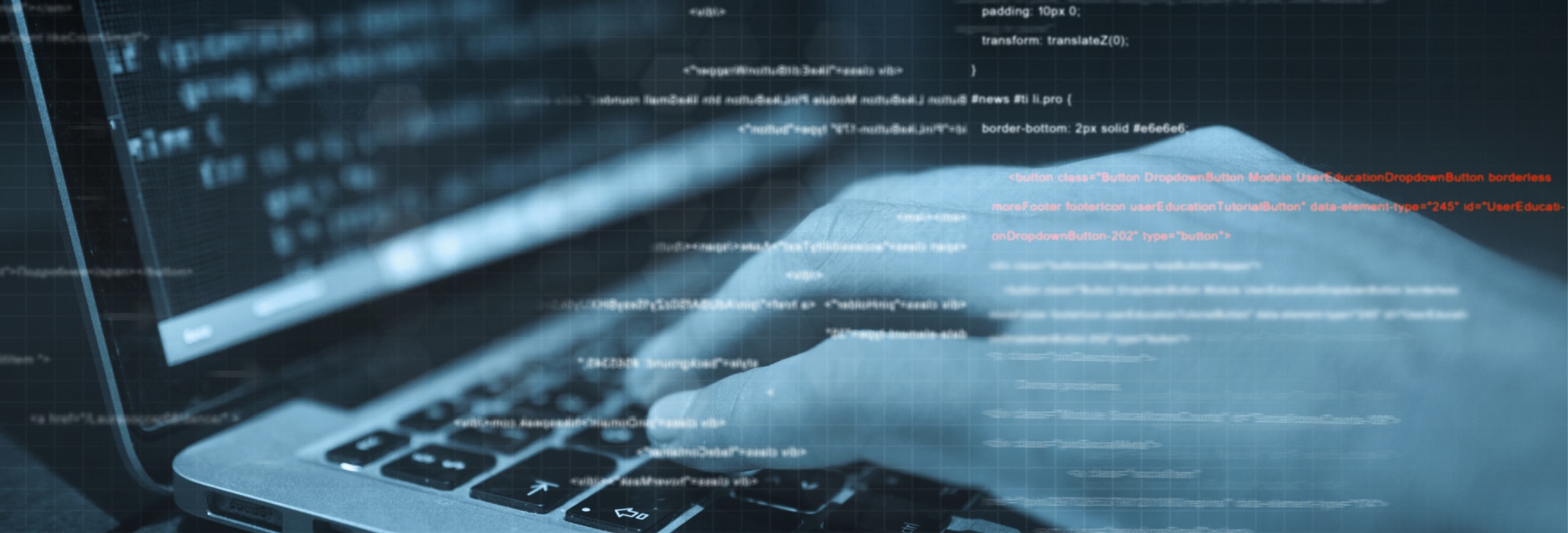How governments fight Cybercrime: strategies and progress
2023-09-22
We have begun the irreversible journey towards a digital era, though not without consequence. Cybercrime has become a serious problem, and the criminals behind it seem to always be one step ahead. The attacks waged by these criminals are not only extremely harmful to us as individuals, but pose substantial risks to the national security and economic stability of governments around the world. In response, governments are taking proactive steps in the war against cybercrime. This article explores the actions and strategies employed by governments to protect citizens and institutions from the ever-evolving digital underworld.
Governments’ responses to cyber threats

The rise of cybercrime in recent years has been staggering. As more aspects of our lives and critical infrastructure become digitized, bad actors have seized the opportunity to exploit new and unprecedented vulnerabilities. It is the victimisation of individuals and businesses that has compelled governments to take action against criminals. Consider the four following examples that have called for the combined action of governments globally:
- Ransomware Attacks: Ransomware attacks have surged in recent years, with millions of incidents reported globally. These attacks paralyze businesses, hospitals, education centres and government agencies, which can have adverse effects on those who rely on this critical infrastructure.
- Data Breaches: The loss of data by compromised businesses can have far-reaching consequences on those affected, including an increased risk of identity theft and financial fraud. Governments not only have a responsibility to safely handle the data they hold themselves, but also to ensure the best practice of private enterprises under their jurisdiction.
- Financial Losses: Cybercrime has the potential to cripple economies due to the interference with typical business operations, as well as the payment of ransoms by victims. In fact, cybercrime is estimated to be responsible for $8 trillion in 2023, and rising to over $10 trillion by 2025, which is a significant amount of the global GDP.
- Nation-State Attacks: Governments have also become the victims of state-sponsored cyberattacks, including ransomware, malware, DDOS attacks and more, which are perpetrated to impede war efforts or to affect foreign economies. These attacks target critical infrastructure, military systems, and sensitive government information.
The future of business is looking more and more digital as time goes on, and a huge push towards the digitalisation of business operations was necessitated by the coronavirus pandemic. The move from office space to cyberspace was a hurried one, and many businesses initially lacked the robust cybersecurity protocols that are needed to prevent attacks from occurring. As such, in 2019 and 2020, there was a huge increase in cybercrime which has persisted to this day, and which has led to the exposure of billions of people. Governments have a responsibility to ensure that individuals, businesses and agencies are properly protected in this nascent digital age.
How are World Governments doing to prevent cyber attacks?
While international frameworks such as the Budapest Convention have been widely ratified by countries all over the world, individual nation states are also making concentrated efforts to prevent cybercrime even beyond their own borders.
- United States: The U.S. has taken significant steps to combat cybercrime, not just that which effects itself, but globally, by weaponising agencies like the Federal Bureau of Investigation (FBI) and the Cybersecurity and Infrastructure Security Agency (CISA) against the perpetrators. The U.S. actively participates in international cybersecurity initiatives and engages in robust public-private partnerships to enhance national cybersecurity, such as funding the MITRE corporation who maintain the CVE system of categorising cybersecurity risks.
- Germany: Germany is known for its stringent data protection laws and cybersecurity initiatives. The country hosts the European Cybersecurity Organization (ESCO), which facilitates collaboration among EU member states in addressing cyber threats, and the well-equipped Bundeskriminalamt (BKA) and Central Office for Combating Cybercrime(ZIT). Germany's cyber taskforce is known for seizing major darknet markets such as Hydra, as well as multiple other darknet businesses and forums.
- United Kingdom: The United Kingdom operates the National Cyber Security Centre (NCSC), offering comprehensive cybersecurity guidance and responding to cyber incidents to help build resilience towards cyber attacks, as well as the National Cyber Force (NCF) and the National Crime Agency (NCA). The UK also contributes professionals and funding towards the cyber taskforces of Europol (EC3, J-CAT), Interpol, and other international collaborations for the prevention of cybercrime.
- Israel: Israel funds the Israel National Cyber Directorate (INCD) which has a strong focus on the research and development of techniques to defend against cyber attacks. It has a thriving cybersecurity industry and a specialized cyber unit within its intelligence services to counter cyber threats. Israel itself has been the target of a number of state-sponsored attacks and has been successful in protecting their population by providing funding and training to Israeli businesses and government agencies.
- Ukraine: Ukraine has actively engaged in countering cyber threats, especially in the face of state-sponsored attacks. The Ukrainian cyber police has been proactive in the defence of the country's citizens by targeting online criminal communities, and working jointly with the police to perform raids on server locations. It has established the State Cyber Protection Center to defend against cyber threats, enhance cybersecurity infrastructure, and promote international cooperation.
It is impossible to provide with any brevity a good picture of the level of international cooperation against cybercrime. Countries all over the world have contributed to this global effort just as those above; establishing Computer Emergency Response Teams (CERTs) and task forces, signing and ratifying internationally unifying treatise against cybercrime, and responding to cyber threats in a manner which improves the safety of everybody.
Government Responses to Cyber Threats
Given the nature of cyber threat landscape, which is always evolving, it's no surprise that governments are being proactive in combating cybercrime. Their responses are wide and varied in scope, showing a defensive strategy that covers all bases:
- Legislation and Cybersecurity Laws: Governments worldwide are passing legislation to define and address cybercrimes. These laws grant law enforcement agencies the necessary tools to investigate and prosecute offenders.
- International Collaboration: Cyber threats transcend borders, making international cooperation pivotal. Through careful legislation, governments have given themselves the capacity to participate in initiatives like INTERPOL and to share intelligence with other nations in the fight against global cybercrime networks.
- Investment in Cybersecurity Infrastructure: Governments allocate significant resources to strengthen national cybersecurity infrastructure, including funding for research, development, and implementation of new security technologies.
- Cybercrime Task Forces: Specialized task forces or agencies dedicated to combating cybercrime are established. These units are staffed with experts in digital forensics, threat analysis, and law enforcement.
- Public Awareness and Education: Governments invest in public awareness campaigns and educational programs to inform citizens about online risks and best practices for online safety.
- Deterrence and Prosecution: Following legislative guidance from international councils, governments have been enabled to undertake domestic legal procedures against the perpetrators of cybercrime. Offenders are prosecuted, and in cases are made an example of to deter others.
- Collaboration with Private Sector: Governments collaborate with private sector organizations to enhance cybersecurity efforts through public-private partnerships.
Suffice to say that the growing threat of cybercrime calls for the strong intervention of governments. The statistics paint a grim picture, and the rise of cyber threats underscore the importance of these efforts. But in some respects, we have seen a decline. Businesses are being guided to refuse to pay ransoms, and to establish effective cybersecurity departments of their own. Data breaches have declined, because user data is better protected than ever. Through the actions of governments, businesses, agencies and individuals are adapting to the evolving digital landscape.
By investing in our cybersecurity, and collaborating internationally to protect businesses and people all over the world, it appears that we are just beginning to turn the tide against cybercrime.
Sources
https://www.coe.int/en/web/conventions/full-list?module=treaty-detail&treatynum=185
https://cybersecurityventures.com/cybercrime-damages-6-trillion-by-2021/
https://www.statista.com/statistics/494947/ransomware-attempts-per-year-worldwide/
https://techinformed.com/data-breaches-halve-in-q1-2023/
Disclaimer
The information contained in this article is provided for informational purposes only and does not constitute professional advice and is not guaranteed to be accurate, complete, reliable, current or error-free

Related news

ToolShell and SharePoint: A Hackathon Gone Wrong
2025-09-25This article summarizes the timeline of the ToolShell exploit, a Microsoft SharePoint zero-day vulnerability. It covers the exploit's rapid spread, which affected critical US government departments, and highlights how slow patching contributed to the attacks.
Read more
Is Microsoft Teams Secure? A Look at Emerging Threats
2025-08-22Trusted by millions of people, Microsoft Teams is now a playground for cybercriminals. This article explores social engineering tactics, real malware campaigns like DarkGate, and offers practical steps to stay safe in today’s evolving threat landscape.
Read more
Antivirus Evasion: Why Cyber Attacks Still Succeed
2025-06-20Cybercriminals are mastering antivirus evasion, using tactics like code obfuscation, encryption, and process injection. Real-world breaches show why antivirus alone isn’t enough—and how layered protection like EDR is essential to securing your data.
Read more
Akira: the ransomware group quietly building a cybercrime enterprise
2025-06-04Akira has quickly become one of the most feared ransomware groups that emerged in 2023, launching indiscriminate attacks across countries and sectors. Known for its aggression, use of double extortion, and links to Conti and Ryuk, Akira represents a new level of cybercrime professionalism and global risk.
Read more
DDOS Attacks Rock The Italian Financial Sector
2025-02-21The Russian-based NoName057 group has targeted Italy's financial infrastructure with DDOS attacks, affecting banks and other critical organizations. These attacks are linked to Italy's support for Ukraine. The attacks highlight the need for businesses to implement real-time monitoring and advanced security measures to protect their infrastructure.
Read more
Gazavat/Expiro Malware Spotted in Africa after Decade-Long Disappearance
2024-11-15Resurgent Expiro malware is spreading in Africa, leveraging advanced techniques to evade detection and steal sensitive data. Learn prevention and mitigation rules for consumers and business.
Read moreContacts
Let's talk
Please fill in the form below (fields with * are mandatory) and we will respond to your request as soon as possible!